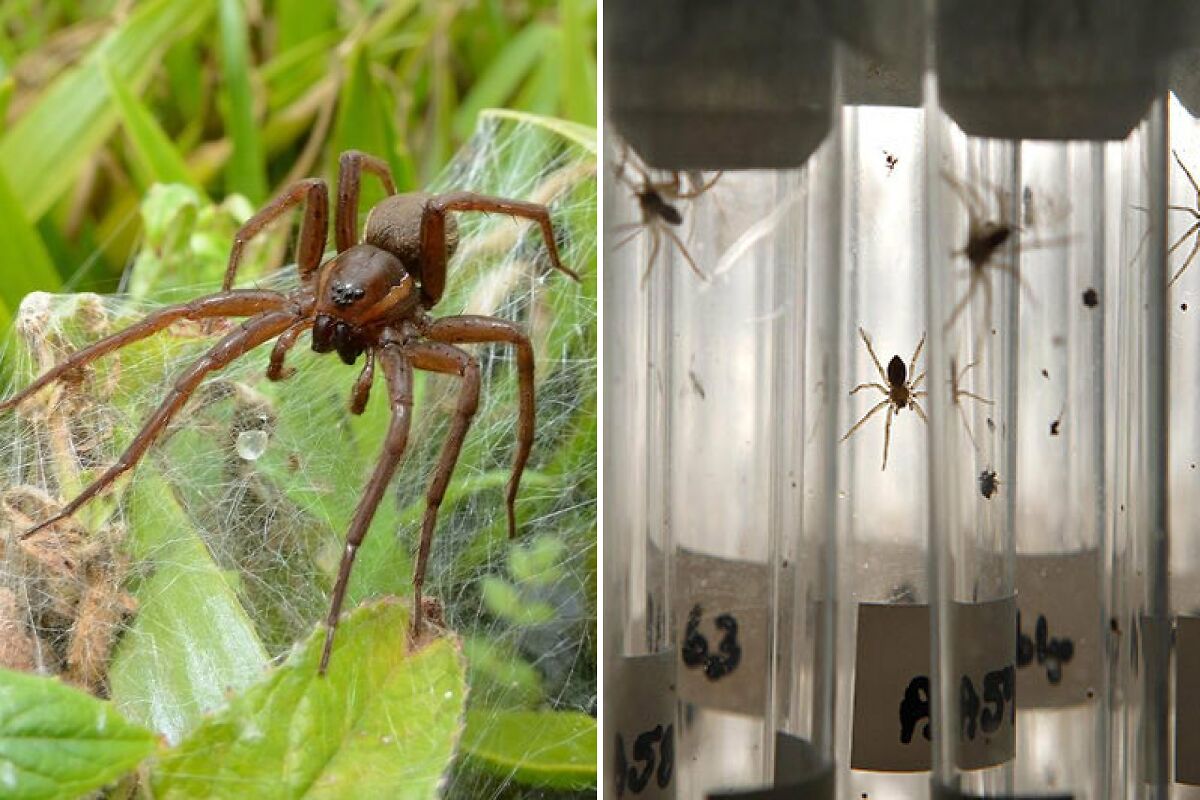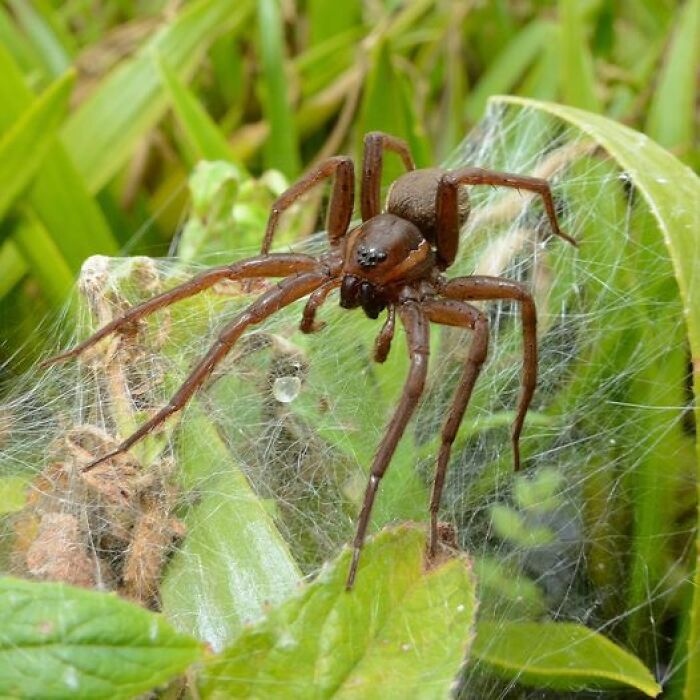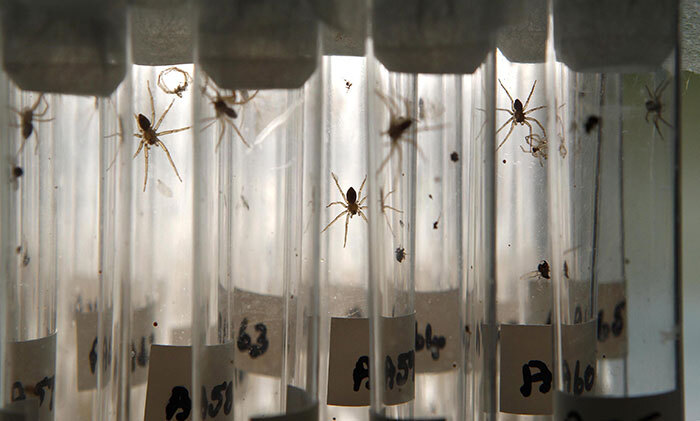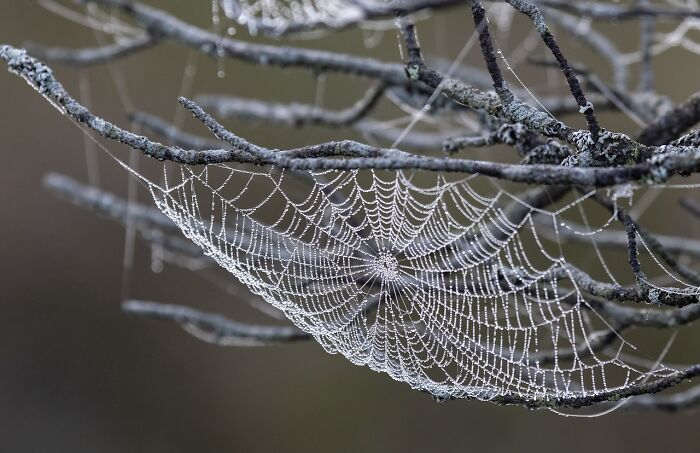
Zoo Celebrates Release Of Thousands Of “Giant Spiders” That Can Grow As Big As Your Hand
The UK’s Chester Zoo shared a remarkable conservation milestone that could help people rethink their feelings about spiders!
In a recent social media post, the zoo revealed that it is celebrating a decade since the successful release of thousands of giant fen raft spiders into the UK.
Once teetering on the brink of extinction, these arachnids have made a formidable comeback in the country, and the zoo eagerly shared the thrilling news with the world.
- Chester Zoo celebrated a decade of reviving giant fen raft spiders.
- Once teetering on the brink of extinction, these arachnids have made a formidable comeback in the UK over the last decade.
- When the conservation effort began, hundreds of baby spiders were carefully placed in their own individual test tubes and hand-fed.
- RSPB estimated that there are 10,000 breeding females across the UK about a decade after the spiders were released
Chester Zoo marked ten years since the release of thousands of giant fen raft spiders into the UK
Image credits: Chester Zoo
“Ten years ago we helped release THOUSANDS of GIANT spiders back into the UK!” read the zoo’s social media post last week.
“The fen raft spiders were bred right here at the zoo, and we’re super happy to report there are now more than 10,000 breeding females… and they’ve just had the biggest mating season on record!” the post continued.
“You can’t miss them, they grow to be the size of your hand! Honestly, you’re so welcome,” they quipped.
The impressive recovery was born out of necessity, as these spiders were on the brink of extinction.
Hundreds of baby spiders were carefully placed in individual test tubes and hand-fed as part of the conservation effort
Image credits: Peter Byrne/PA Images via Getty Images
Fen raft spiders were facing drastic declines due to the destruction of their wetland habitats, the English zoo said in an August press release.
To combat this, a team of experts at Chester Zoo launched a rescue program in collaboration with the Royal Society for the Protection of Birds (RSPB).
They painstakingly gathered hundreds of baby spiders and carefully placed them in individual test tubes to safeguard their survival and ensure they didn’t have each other for breakfast.
RSPB estimated that there are 10,000 breeding females across the UK about a decade after the spiders were released
View this post on Instagram
“Our team delicately hand fed tiny flies to each of the hundreds of spiderlings using tweezers, day in, day out, for weeks on end in our bio-secure breeding facility,” read the zoo’s press release.
“Eventually, the young spiders grew strong enough to be returned to their natural habitat, which our partners worked to restore, and we released them in their hundreds!” the statement added.
A decade and a half later, the zoo proudly announced that there are 10,000 breeding females across the UK, according to RSPB estimates.
“These spiders have an important role in maintaining the rich aquatic diversity…,” said Tim Strudwick, RSPB Mid Yare nature reserves site manager.
Image credits: LTapsaH / Pixabay
Although these spiders can grow to the size of a human palm, the zoo assured people that they are harmless to humans and are important in maintaining the marsh ecosystems they are typically found in.
“These spiders have an important role in maintaining the rich aquatic diversity found in the grazing ditches on our reserves. The females are impressive in size, but also beautiful – they are truly special to see!” said Tim Strudwick, RSPB Mid Yare nature reserves site manager.
Poll Question
Thanks! Check out the results:
"Honestly, you’re so welcome." 😅 They know what they did there. Always nice to see a conservation success (however you feel about spiders).
I see that the people who believe that only "cute" animals are worthy of conservation are providing their opinions. Spiders are important to the environment, and very interesting. If you're scared of something that is a fraction of your size, to the point that you want to eradicate all such animals, you should get therapy, not wave around your disorder as though it is some sort of super power to be proud of.
"Conservation can’t just be a popularity contest" https://www.nationalgeographic.com/magazine/article/conservation-cant-just-be-a-popularity-contest
Load More Replies...Fun spider fact of the day. Spiders that weave orb webs scatter the droplets of glue on the thread evenly. They do this by starting with one drop of glue at one end of the thread, and then they strum the thread, which breaks the drop into droplets, and the distance between the droplets is determined by the frequency that the spider strums.
That's really interesting! They really are clever little guys aren't they?
Load More Replies..."Honestly, you’re so welcome." 😅 They know what they did there. Always nice to see a conservation success (however you feel about spiders).
I see that the people who believe that only "cute" animals are worthy of conservation are providing their opinions. Spiders are important to the environment, and very interesting. If you're scared of something that is a fraction of your size, to the point that you want to eradicate all such animals, you should get therapy, not wave around your disorder as though it is some sort of super power to be proud of.
"Conservation can’t just be a popularity contest" https://www.nationalgeographic.com/magazine/article/conservation-cant-just-be-a-popularity-contest
Load More Replies...Fun spider fact of the day. Spiders that weave orb webs scatter the droplets of glue on the thread evenly. They do this by starting with one drop of glue at one end of the thread, and then they strum the thread, which breaks the drop into droplets, and the distance between the droplets is determined by the frequency that the spider strums.
That's really interesting! They really are clever little guys aren't they?
Load More Replies...
 Dark Mode
Dark Mode 

 No fees, cancel anytime
No fees, cancel anytime 






























27
22